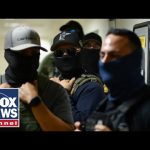In a nation where the political landscape seems to change faster than the seasons, recent events have sent shockwaves through conservative circles. The assassination of prominent conservative commentator Charlie Kirk has not only raised questions about safety and security but has also ignited a broader discussion about the escalating violence in America, particularly on the left. With echoes of past turmoil—the summer of 2020, when cities were engulfed in chaos—many are now pondering the implications of such violence on the future of the United States.
The former Speaker of the House, Newt Gingrich, has been vocal about the seriousness of the current situation. He points out a troubling trend: while discussions about violence often overlook the past, the left has a long history steeped in political aggression. From riots to bomb threats, the radical actions, in Gingrich’s view, reveal a faction that not only hates American values but also feels emboldened to act on these feelings. The chaos of the past, marked by protests and destruction, seems to be bubbling back to the surface, potentially indicating a dangerous crossroads for the country.
Utah’s Governor Spencer Cox adds another layer to this conversation by labeling the assassination a watershed moment in American history. But what kind of watershed? Is it the beginning of a more violent chapter, or are we witnessing the last gasp of a fading ideology? With the political division becoming harder to ignore, it’s clear that Americans are caught in a cultural battle with deep implications for the future. The government’s response—or lack thereof—will ultimately shape which way the tide turns, and whether citizens feel safe expressing their opinions in public.
The Department of Justice has taken a keen interest in the complex web of financial support behind protest movements. Allegations of organized groups, backed by unseen financiers, raise alarming questions about who is truly behind the unrest. One likely suspect is the well-known Soros Foundation, often cited in discussions about radical funding. This kind of shadowy financial support suggests a calculated effort to disrupt and destabilize the country, signaling that the motivations for protests go beyond mere discontent; they are rooted in a broader strategy.
Modern technology plays a critical role in the proliferation of political violence. Gingrich emphasizes the importance of examining not just the funding but also how the internet serves as a breeding ground for radicalization. Many individuals are being groomed to embrace violence as a means to an end, encouraged by online rhetoric that seeks to normalize such behavior. Recognizing this pattern, which often goes unnoticed in individual reports of violence, is essential for understanding the larger threat facing American society.
As the nation grapples with these pressing issues, the future remains uncertain. The convergence of money, ideology, and technology creates a volatile mix that can ignite unrest at any moment. Americans are left to wonder: is this truly the beginning of a dark chapter, or will rationality and civility prevail? Time will tell, but for now, the landscape of American democracy is palpably charged, and the stakes have never been higher.




